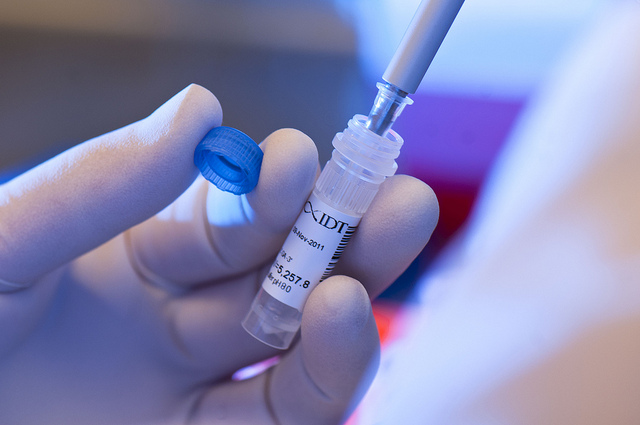Ancestry wants your spit, your DNA and your trust. Should you give them all three?
By Stuart Leavenworth,
McClatchy DC Bureau [Cites CGS' Marcy Darnovsky]
| 05. 29. 2018
It markets its DNA kits with promises that tug at the heartstrings: Discover ancestors. Strengthen family ties. Understand your life.
Aided by venture capital and a flood of savvy marketing, Ancestry LLC has grown to become the world’s largest DNA testing conglomerate. Since 2012, it has lured more than 5 million people to spit into tubes and add their genetic code to the world’s largest private database of DNA. It has also banked away the world’s largest collection of human spittle, numbering in the hundreds of gallons.
In the age of Facebook and Google, consumers seem comfortable surrendering their personal information to corporations that aggregate it and monetize it. But Ancestry and other DNA testing companies have added an audacious tweak: Consumers are now paying to hand over their genetic code, their most sensitive individual identifier, to companies that could monetize it far into the future.
Ancestry officials say they have state-of-the-art systems to prevent hacking and security breaches. So far the company has sidestepped privacy scandals that tripped up companies like Facebook, which allowed a political data firm, Cambridge...
Related Articles
By Diaa Hadid and Shweta Desai, NPR | 01.29.2026
MUMBRA, India — The afternoon sun shines on the woman in a commuter-town café, highlighting her almond-shaped eyes and pale skin, a look often sought after by couples who need an egg to have a baby.
"I have good eggs,"...
By George Janes, BioNews | 01.12.2026
A heart attack patient has become the first person to be treated in a clinical trial of an experimental gene therapy, which aims to strengthen blood vessels after coronary bypass surgery.
Coronary artery bypass surgery is performed to treat...
By Staff, ScienceDaily | 01.05.2026
Scientists at UNSW Sydney have developed a new form of CRISPR technology that could make gene therapy safer while also resolving a decades-long debate about how genes are switched off. The research shows that small chemical markers attached to DNA
...
Following a long-standing CGS tradition, we present a selection of our favorite Biopolitical Times posts of the past year.
In 2025, we published up to four posts every month, written by 12 authors (staff, consultants and allies), some in collaboration and one simply credited to CGS.
These titles are presented in chronological order, except for three In Memoriam notices, which follow. Many more posts that are worth your time can be found in the archive. Scroll down and “VIEW...




